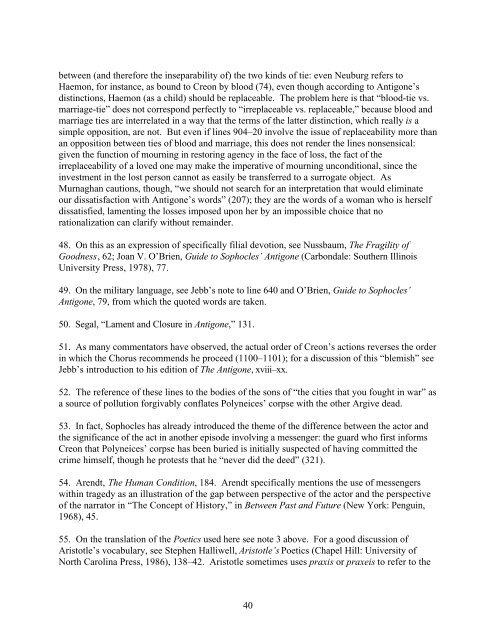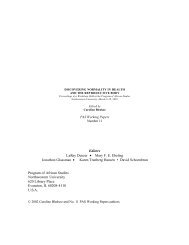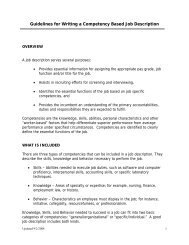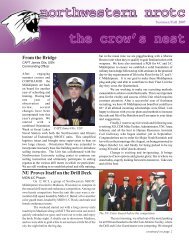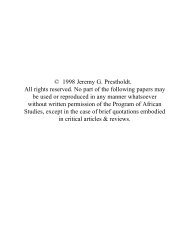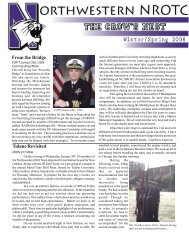TRAGIC RECOGNITION: ACTION AND IDENTITY IN ANTIGONE ...
TRAGIC RECOGNITION: ACTION AND IDENTITY IN ANTIGONE ...
TRAGIC RECOGNITION: ACTION AND IDENTITY IN ANTIGONE ...
You also want an ePaper? Increase the reach of your titles
YUMPU automatically turns print PDFs into web optimized ePapers that Google loves.
etween (and therefore the inseparability of) the two kinds of tie: even Neuburg refers to<br />
Haemon, for instance, as bound to Creon by blood (74), even though according to Antigone’s<br />
distinctions, Haemon (as a child) should be replaceable. The problem here is that “blood-tie vs.<br />
marriage-tie” does not correspond perfectly to “irreplaceable vs. replaceable,” because blood and<br />
marriage ties are interrelated in a way that the terms of the latter distinction, which really is a<br />
simple opposition, are not. But even if lines 904–20 involve the issue of replaceability more than<br />
an opposition between ties of blood and marriage, this does not render the lines nonsensical:<br />
given the function of mourning in restoring agency in the face of loss, the fact of the<br />
irreplaceability of a loved one may make the imperative of mourning unconditional, since the<br />
investment in the lost person cannot as easily be transferred to a surrogate object. As<br />
Murnaghan cautions, though, “we should not search for an interpretation that would eliminate<br />
our dissatisfaction with Antigone’s words” (207); they are the words of a woman who is herself<br />
dissatisfied, lamenting the losses imposed upon her by an impossible choice that no<br />
rationalization can clarify without remainder.<br />
48. On this as an expression of specifically filial devotion, see Nussbaum, The Fragility of<br />
Goodness, 62; Joan V. O’Brien, Guide to Sophocles’ Antigone (Carbondale: Southern Illinois<br />
University Press, 1978), 77.<br />
49. On the military language, see Jebb’s note to line 640 and O’Brien, Guide to Sophocles’<br />
Antigone, 79, from which the quoted words are taken.<br />
50. Segal, “Lament and Closure in Antigone,” 131.<br />
51. As many commentators have observed, the actual order of Creon’s actions reverses the order<br />
in which the Chorus recommends he proceed (1100–1101); for a discussion of this “blemish” see<br />
Jebb’s introduction to his edition of The Antigone, xviii–xx.<br />
52. The reference of these lines to the bodies of the sons of “the cities that you fought in war” as<br />
a source of pollution forgivably conflates Polyneices’ corpse with the other Argive dead.<br />
53. In fact, Sophocles has already introduced the theme of the difference between the actor and<br />
the significance of the act in another episode involving a messenger: the guard who first informs<br />
Creon that Polyneices’ corpse has been buried is initially suspected of having committed the<br />
crime himself, though he protests that he “never did the deed” (321).<br />
54. Arendt, The Human Condition, 184. Arendt specifically mentions the use of messengers<br />
within tragedy as an illustration of the gap between perspective of the actor and the perspective<br />
of the narrator in “The Concept of History,” in Between Past and Future (New York: Penguin,<br />
1968), 45.<br />
55. On the translation of the Poetics used here see note 3 above. For a good discussion of<br />
Aristotle’s vocabulary, see Stephen Halliwell, Aristotle’s Poetics (Chapel Hill: University of<br />
North Carolina Press, 1986), 138–42. Aristotle sometimes uses praxis or praxeis to refer to the<br />
40


